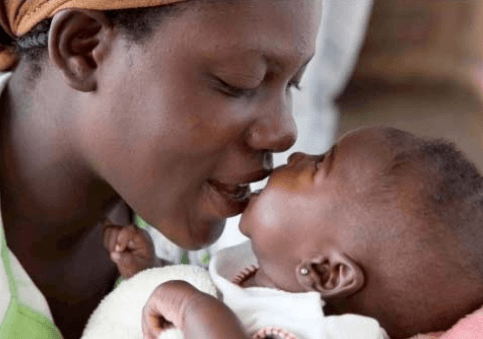
"No woman should die giving life to another" -Ban Ki-moon. A knock on my door around midnight; and, there, my neighbor stands so desperate in need of my help to convey his laboring wife to the hospital. I hurriedly dressed up and rushed for the car keys so to be quick enough to help save a life.
However, as I started the car and moved a little while, I noticed the car was not pulling, so I quickly got down to check what the problem really was only to realize that my car tyre was deflated. It took 10 to 15 minutes to change the car tyre and the woman in labour had her water already burst and was bleeding profusely. The fear and anxiety got me so confused that I could not drive as fast as I could. I finally got to the hospital and there too was another delay as the nurses were fast asleep.
Now came the issue of picking folders and all those formalities that our hospitals have adopted that can be called a silent killer. Folder must be seen before any treatment commences. Unfortunately, the baby came but the mother was gone. Couldn't this death have been averted? And must any woman die because she wants to give life to another child and to the prospects of a nation another life or do what must be done to keep the world running?. This is only one out of several other stories and cases in maternal mortality across Africa and, in this case, Ghana.
Maternal Mortality
A Pregnancy-related death or maternal mortality is defined by the World Health Organization (WHO) as the death of a woman while pregnant within 42 days of termination of pregnancy, irrespective of the duration and the size of the pregnancy, from any cause related to or aggravated by the pregnancy or its management (from direct or indirect obstetric death), but not from accidental or incidental causes.
Causes
Across the globe, maternal mortality has, over the years, been caused by several factors, but the most common causes in Africa which record the highest death ratios are obstetric hemorrhage, puerperal sepsis, pregnancy-induced hypertension (including eclampsia), obstructed labour and ruptured uterus and complications of unsafe abortion, accounting for the direct causes of maternal deaths, culminating in 80 per cent of cases in Africa.
Here in Ghana, even though the above factors pertain, other factors have deepened the woes of expectant mothers. Some of these factors include unavailability of healthcare facilities; wrong or ill professional conduct on the part of hospital workers, nurses and midwives; inadequate education for people in such conditions to understand the health and the changes their bodies are going through; and poverty, among others
This day and age, religious factors have also created more problems for women expecting. In this area, people who purport to be men of God and call themselves names ranging from Bishop, deacon, osofo, pastor, seeyer and daddy, among other names, are seen to be usurping the power of God in determining the fate of their expectant mothers.
These "men of god" sometimes advise pregnant women to fast in order to be able to have a safe delivery, thus ignoring the need for the expectant mother to nutritionally build her body in preparation for safe child birth which needs much strength and blood to successfully go through.
Expectant mothers are expected to nourish their body eating greens like kontomire and borkorbokor leaves as well as lots of vegetables to fortify and adequately prepare them for safe delivery and healthy babies. Yet, most resort to fasting which makes them prone to the danger of losing their lives or their of their babies.
Some traditional medicine practitioners are also known for telling pregnant women not to eat okro, mango which lead women astray.
Then is the lackadaisical attitude of nurses (should I commence treatment or should I not or should I give first aid or not). Indeed, most people would tell you that if you do not know a nurse at a medical facility or an important personality as in being a popular actor or actress, a politician or a known face in Ghana, then you would die quicker because no importance and attention wil be accorded you in a hospital. Others would say, your pocket size determines whether you live or die when sick. That is to say, if you are not rich to give tips to ginger health workers to attend to you, then you must be prepared to "see God". Even in the hospital, you need connection to survive- That is how bad the situation has become and getting worse by the day.
Interventions
Several interventions by the Ministry of Health and other health-related bodies concerned about the plight of expectant mothers have put in much effort to curb maternal mortality and have helped save as many lives as practicable through stake holder engagements, construction and rehabilitation of maternal health facilities, educational campaigns and outreach programmes to reach to women in need of maternal care and support and to reduce the rate at which women die during child birth.
I recall that the hospitals encouraged the involvement of men to support their pregnant wives by ensuring that women who were accompanied by their husbands to antenatal visits were not made to queue but given preferential treatment, a move to get the men more involved in issues regarding maternal health. Former president John Agyekum Kufour, also during his administration, introduced free antenatal care for all expectant mothers with or without health insurance, a move that saw more women accessing health care during pregnancy.
Lately, The Ministry of Health has launched the Campaign on Accelerated Reduction of Maternal Mortality rate in Africa (CARMMA), an African Union initiative which isbeing implemented on the theme: "Africa cares: no woman should die while giving life". CARMMA has the objective to help accelerate the availability and use of universally accessible quality health care that are critical to the reduction of maternal and child mortality.
CARMMA is focusing in three areas including the use of positive messaging to ensure better understanding of their sexual and reproductive rights and choices which will impact on how expectant mothers make informed choices and decisions. This also affords the opportunity to be empowered to engage in family planning choices to help the woman solely decide either to have or not to have more children.
It also will encourage best practices, enhance political leadership and commitments at the national level, and also intensify actions aimed at the reduction of maternal and infant mortality.
Worthy of note, among the most beautiful aspects of the CARMMA intervention is the involvement of the chiefs and traditional leaders in curbing maternal mortality rates. As Ghanaians, we cannot achieve much if we work without this group of people who form the central part of our society.
Conclusion
As healthcare becomes a common phenomenon and very sophisticated, our expectations as a people become bigger and our health concerns grow much deeper. Casting my mind back to days of old when healthcare was quiet minimal, maternal death was not as high as we experience today either because the traditional midwives were evenly distributed in all communities to cater for the health needs of the people or that women were eating well, taking their health seriously and adhering to the dictates of their midwives.
The situation should get better with such sophistication in healthcare delivery, but the reverse is rather the case. What have we left behind? If, indeed, something has been left behind why then not go back for it, guided by the popular saying "sankofa yentsi?" It is most appropriate to return to those days where health workers are not thinking money, but saving lives as their most cherished ambition.
The writer is an officer of the Information Services Department.
This email address is being protected from spambots. You need JavaScript enabled to view it.
Read Full Story





















Facebook
Twitter
Pinterest
Instagram
Google+
YouTube
LinkedIn
RSS